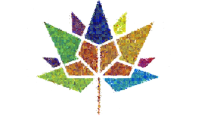Machine Learning and Music: live stream with the Raspberry Pi Foundation
Artash and Arushi Nath On 2 December 2020, we did a live stream with the Raspberry Pi Foundation on their Digital Making at Home series. It was a fascinating opportunity […]
 HotPopRobot
HotPopRobot
Space – Science – Robots
Artash and Arushi Nath On 2 December 2020, we did a live stream with the Raspberry Pi Foundation on their Digital Making at Home series. It was a fascinating opportunity […]
Artash and Arushi Nath
On 2 December 2020, we did a live stream with the Raspberry Pi Foundation on their Digital Making at Home series.
It was a fascinating opportunity to demonstrate to a global audience on how COVID19 may have closed school doors for kids around the world but not windows to learning, making and having fun. During the live stream we talked about the projects we made during the lockdown period using our combined interests in coding, space, music and environment.
We shared details about our “The Masked Scales” project where we collected data from space, ground and subsurface to understand the changes in our surroundings because of the COVID19 lockdown. These included changes in the pollution levels, street sounds, city night lights, traffic data and the COVID19 cases during and after the lockdown. Watch the interview here.
 We used machine learning and other data analysis tools such as Python to analyse the data we gathered over a period of 3 weeks. We later quantified these changes we measured and converted them into a musical to sonify our results and reach out to the widest possible audience. The musical was created using different musical instruments including flute, vibraphone, marimba and piano. Each of the instrument sonified changes in a specific indicator. For example, marimba was set to the changes in light data gathered during the day and night (and was a constant beat to our music) while vibraphone played to pollution levels in G major, piano to street noise in E major, and flute to changes in COVID19 infection rates in A major. The tempo of the music was determined by the changes in the city night lights and reduction in the traffic on the road.
We used machine learning and other data analysis tools such as Python to analyse the data we gathered over a period of 3 weeks. We later quantified these changes we measured and converted them into a musical to sonify our results and reach out to the widest possible audience. The musical was created using different musical instruments including flute, vibraphone, marimba and piano. Each of the instrument sonified changes in a specific indicator. For example, marimba was set to the changes in light data gathered during the day and night (and was a constant beat to our music) while vibraphone played to pollution levels in G major, piano to street noise in E major, and flute to changes in COVID19 infection rates in A major. The tempo of the music was determined by the changes in the city night lights and reduction in the traffic on the road.
This was a very intensive project that require making sensors box to measure the changes, having knowledge of databases of NASA satellite imageries to get the city night lights data, knowledge of Arduino, python and machine learning algorithms to do the analysis, understanding of musical instruments that would fit well with different types of data, ability to work with big datasets running into millions of data lines, and last but not the least, the willingness to continue when things sometimes do not work as you would want them to be.
 Doing projects is a form of learning. It is natural to get frustrated in between trying to solve the unanticipated difficulties and challenges that come during this process. But there is equally a sense of euphoria when one is able to solve these challenges. It gives the confidence of being able to tackle other more complex projects.
Doing projects is a form of learning. It is natural to get frustrated in between trying to solve the unanticipated difficulties and challenges that come during this process. But there is equally a sense of euphoria when one is able to solve these challenges. It gives the confidence of being able to tackle other more complex projects.
So we were very happy when our “The Masked Scales” project ended up being a judges favourite for the “Coolest Projects 2020 Challenge” and becoming the global winner of the “2020 NASA SpaceApps COVID19 Challenge” from among thousands of entries from over 150 countries. We ended up talking about project on CTV News and Global News Canada.
We enjoyed sharing information about our project, our inspiration, and how we integrated musical learning and music during the Raspberry Pi Livestream.
We thank the organisers behind this event. We also want to give a shout out to many organisations with whom we have interacted over the years, participated in their events and which helped us embark in this journey of learning, discovery and taking on new projects. These are the Royal Astronomical Society of Canada, the Ontario Science Centre, Coderdojo Toronto, Kids Code Jeunesse and many others.